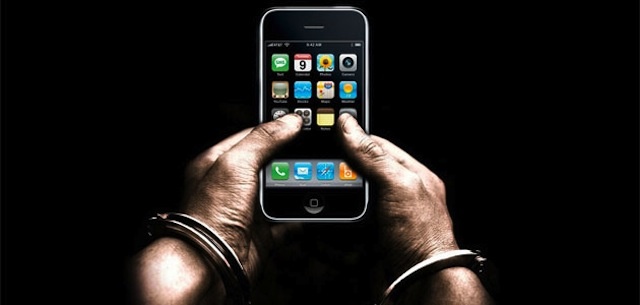Lots of times we hear this in the workplace or in homes today: “Put down the cellphone and get to work! Put down the cellphone and go to bed!”
Many bosses and parents are making these complaints. That is because we are now living in a world that will soon be overrun with billions of smartphones. And, since many of us have trouble unhooking from our phones, many young people go to school or to the office and have trouble concentrating. The same is also true of some older people who get hooked on their phones.
“I’m Sleepy but I Have to Start Working”
Often these kinds of people aren’t getting enough sleep because they’re constantly on the phone. And that has consequences in the classroom, workplace and throughout society.
That’s according to various medical studies examining the problem of cellphone addiction.
“Inadequate sleep can have negative effects on health,” according to Dr. Yolanda Reid Chassiakos. She is a clinical assistant professor of pediatrics at David Geffen School of Medicine at UCLA and has studied cellphone use and abuse.
“Studies have shown that 50 percent of teens consider themselves addicted to their smartphones,” she adds.
This has implications for business, the classroom and the home.
Are You Suffering from this Disease?
Chassiakos, who offers tips for battling cellphone overuse (See Notes below), says some young people are suffering from nomophobia.
That sounds terrible. What is nomophobia and could you possibly have some form of it?
Nomophobia is the fear of not being able to access or use your mobile phone.
The nomophobia problem is becoming more widespread, researchers say.
On the Rise as Smartphones Spread Around the Globe
In 2015, 4 out of 10 teens slept less than seven hours a night. That’s up 58 percent since 1991 and 17 percent more than in 2009. That’s when smartphone use became more mainstream, according to the Journal Sleep Medicine.
Chassiakos notes that young people need eight to ten hours of sleep daily. Yet the addiction to cellphones will likely increase in the near future.
John Oldshue, editor of SaveonPhone.com, which covers the mobile phone industry, says by next year two thirds of everyone in the world will own a smartphone. In the United States, the number will be about 70 percent of the population, he says. I recently saw one effect of the spread of the smartphone and its effect on the workplace.
Nomophobia in Queens, New York
A store owner who lives in my neighborhood recently told me that he had to ban the use of cellphones during working hours.
Why?
It was because “workers weren’t getting anything done.” He required workers coming into the office at the beginning of the business day to surrender their phones, which were returned to them when work was finished.
Part of the problem of cellphone overuse is the average young person can be more vulnerable to addictive behavior than his or her elders. This is the warning of two researchers.
They have studied the problem in an article entitled “Impact of Mobile Phone Addiction on an Adolescent’s Life.”
The Vulnerable Young Person
The young person, they find, “is more inclined towards using mobile phones for activities other than communication than the older generation because in the adolescent stage people are more susceptible to changing fashion trends and styles,” according to Vandana Goswami and Dr. Divya Rani Singh. They were writing in the International Journal of Home Science.
They say that cellphone overuse creates “behavioral disorders.”
These include fatigue, headache, sleeplessness and decreased concentration. Individuals “engrossed in their smartphones neglect other areas of life,” they add.
They also note that some psychiatrists believe that cellphone addiction can be very dangerous. The two researchers say that cellphone addiction “is not different from any other type of addiction (e.g. drug or Internet).” They contend that “mobile phone addiction has become one of the most prevalent non-drug addictions.”
Yet there are steps we can take to stop nomophobia from taking over our lives. For example, since I primarily work at home, I generally put a limit on the use of electronic gadgets.
I won’t begin using them before nine in the morning and I stop using them at seven, which is the time my wife, the ever-comely Suzanne Hall, and I sit down and have dinner. By the way, I’ve also found that dinner is more pleasant if the tube is not on or if it is put on mute. There are also steps that families can take.
Notes:
Steps to Take to Battle a Family Member’s Nomophobia
*Make meals a device-free time for everyone, including parents.
*Avoid technology for the hour before bedtime and in the bedroom during the night.
*Have a central charging station for devices in the living room or family room, preventing overnight use of the devices.
![]()
